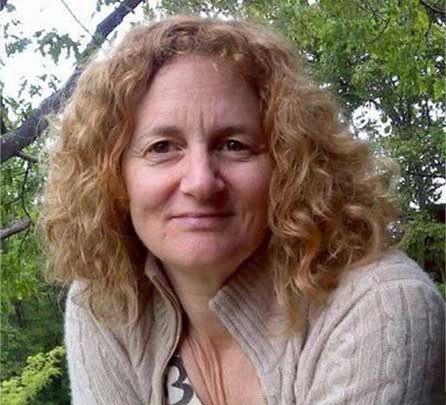Real Cologuard® Story: Arlene
Meet Arlene
Colon Cancer Survivor,
Screened with the Cologuard test
A uterine cancer diagnosis and later that same year, a colon cancer diagnosis. Some would say it's upsetting, others might say it's incredibly unfair. But how exactly would Arlene describe it?
“It’s shocking. I have spent my entire life trying to be healthy, and here it came – out of the clear blue sky.”
That first blow came in early 2020, when Arlene was diagnosed with stage I uterine cancer. After a complete hysterectomy in April, she did not need any additional treatment. It was a big enough scare that she wanted to be proactive and make sure she was up to date with all her routine tests – including screening for colon cancer.
She had already talked to her healthcare provider about her need to screen for colon cancer since 10 years had passed since her screening colonoscopy at age 52. Each screening method carries its own recommendation for when those at average risk should screen again. For colonoscopy, that means every 10 years whereas the American Cancer Society recommends that patients screen for colon cancer again in 3 years following a negative result with Cologuard.1
“I wanted to follow the protocols,” she explained.
“I know colon cancer is a very slow-growing cancer, and it’s important you catch it through regular screening.”
Knowing she was at average risk for colon cancer, her healthcare provider suggested the Cologuard test as an appropriate option this time.
Not long after returning her kit, her healthcare provider called her. Arlene’s Cologuard result was positive, and she needed to have a colonoscopy as soon as possible. Having gone through surgery just a few months earlier, Arlene was understandably stunned.
“I was in disbelief and to be honest, I was a little annoyed,” she admitted. Having just gone through uterine cancer and surgery, the idea of yet another cancer diagnosis was an unwelcome one.
After a colonoscopy, Arlene heard the words “You have cancer” for the second time in only a few months. This time, it was stage III and she would need surgery and chemotherapy.
Arlene accepted the news in waves: her fear turned into understandable frustration which gave way to introspection and relief. At the age of 62, she was starting to look at her life with newfound clarity.
“People go on autopilot,” she explained. “You go to work, you end work, you’re tired and then you start all over again. You can forget who you really are. What you like. What makes you tick. My treatment is finally over and my follow-up appointments have shown no signs of cancer.”
Arlene returned to the things she loved with passion. Things like creative endeavors – knitting, painting, and clay work. Things like traveling with her daughter and filling up her passport with new stamps. Things like giving back to others.

“Nobody wants to get cancer, don’t misunderstand me,” she said. “But in a backward way, this cancer hasn’t been totally bad. It has made me realize what is really important in life.”
In the midst of 24 chemotherapy rounds, that perspective pushed Arlene forward. She doesn’t deny that her road has been a long one – having dealt with cancer for 18 months – but she doesn’t allow herself to wallow in that thinking. Quite the contrary – the peace and purpose she feels in sharing with others is profound.
“I would shout it from the rooftops if I could to get screened,” she said. “Because everybody knows someone who has had cancer. I don’t want people to go through what I did. It’s a terrible thing. The surgery isn’t fun, chemotherapy is awful. And people need to understand that colon cancer is on the rise in younger people.2”
Arlene wants others to feel that urgency – not only toward screening for colon cancer, but around enjoying each day doing the things we love most with the people we love most.
And she doesn’t plan on wasting a single day now that her treatment is finally finished.
“You don’t know what the future holds. Enjoy your life now and treat every day as important.”
This story reflects one individual’s experience. Not every person will have the same treatment, experience, outcome, or result. The Cologuard test is prescribed by a health care provider. Talk to your health care provider about available screening options and whether the Cologuard test may be right for you. There are potential risks associated with the Cologuard test and it may not be appropriate for all patients. For more information about the risks, talk to your health care provider or visit Cologuard.com/risk-information for more information.
